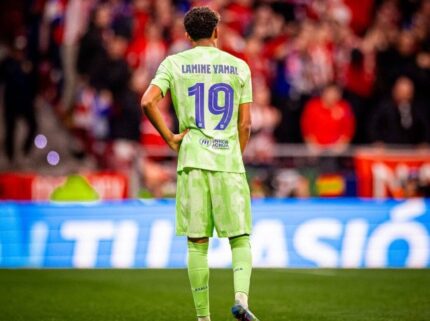Germany kicked off the match with a clear intent to dominate, setting the tone from the very first minute. Florian Wirtz was quickly involved, though he was caught offside within the opening seconds, signaling Germany’s aggressive approach. Their strategy paid off handsomely by the 10th minute when Wirtz opened the scoring with a stunning right-footed shot from outside the box, assisted by a well-placed pass from Joshua Kimmich. This early goal showcased Germany’s technical prowess and ability to capitalize on opportunities from distance.
The German side continued to exert pressure, leading to another breakthrough in the 19th minute. Jamal Musiala doubled the lead with a precise shot from the center of the box, following an assist from Kai Havertz. This goal highlighted Germany’s fluid attacking movement and their ability to break down Scotland’s defense with swift, coordinated plays. By the end of the first 20 minutes, Germany had established a commanding 2-0 lead, reflecting their superiority on the pitch.
Scotland’s Struggles and Germany’s Midfield Mastery
Scotland found it challenging to cope with Germany’s relentless attacks and high pressing. Despite occasional free kicks won by Ryan Christie and Anthony Ralston, Scotland struggled to convert these set pieces into meaningful opportunities. Germany’s midfield, orchestrated by the likes of Ilkay Gündogan and Toni Kroos, controlled the tempo of the game, making it difficult for Scotland to gain any foothold.
Robert Andrich was a key figure in the midfield battle, although he drew attention for the wrong reasons with several fouls, including a yellow card in the 31st minute for a bad challenge. Despite these infractions, Germany’s midfield dominance was evident, as they continually won free kicks and maintained possession, limiting Scotland’s chances to counterattack effectively.
VAR Drama and Penalty Controversy
The first half was not without its moments of controversy, particularly surrounding a potential penalty for Germany in the 26th minute, which was ultimately overturned by VAR. However, the real drama unfolded in the 42nd minute when Ilkay Gündogan was fouled in the penalty area by Ryan Porteous, leading to a penalty for Germany. The decision was upheld after a VAR review, and Porteous received a red card, reducing Scotland to ten men.
Kai Havertz stepped up to take the penalty and confidently converted with a left-footed shot to the center of the goal, putting Germany 3-0 up just before halftime. This penalty incident not only extended Germany’s lead but also compounded Scotland’s woes, leaving them with a mountain to climb in the second half.
Halftime Analysis: Germany’s Tactical Superiority
As the first half came to a close, Germany tactical superiority was evident. Their ability to transition quickly from defense to attack, combined with precise passing and clinical finishing, left Scotland reeling. Germany’s defense, led by Jonathan Tah, remained resolute, thwarting any attempts by Scotland to breach their lines.
Scotland, on the other hand, faced a daunting task going into the second half. With Ryan Porteous sent off and a three-goal deficit to overcome, they needed a significant tactical shift to have any chance of mounting a comeback. Germany’s control over the midfield and their clinical execution in the attacking third were key factors that put them in a commanding position as the teams headed into the break.
In summary, the first half was a showcase of Germany’s footballing prowess, with standout performances from Florian Wirtz, Jamal Musiala, and Kai Havertz. Scotland’s lack of discipline and inability to contain Germany’s attacking threats left them with a challenging path ahead. The halftime score of 3-0 reflected Germany dominance and set the stage for what promised to be a difficult second half for Scotland.














